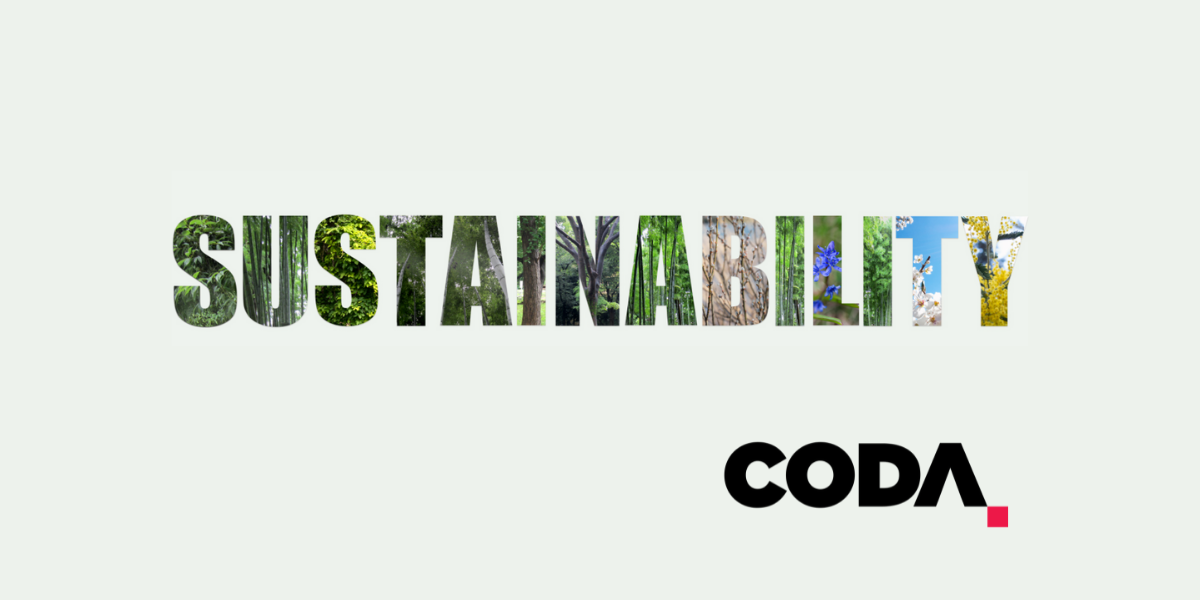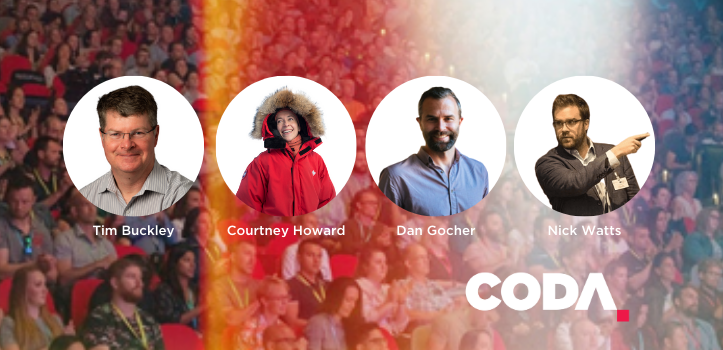Sustainable healthcare: A move to Net Zero.
If the health sector were a country, we would be the fifth-largest polluter in the world. It is crucial that we move towards a sustainable healthcare system, but what exactly does this mean?
The NHS has led the way in modelling a Net Zero healthcare system. They have done this by considering all aspects of the industry, including energy, transport, Telehealth, equipment, devices and disease prevention.
The reality is we live in a linear economy. Particularly in medicine – we buy things, we use them and we throw them out. The NHS has pledged to only use suppliers who match or exceed their expectations with Net Zero healthcare. You can’t address waste without addressing what you purchase.
How can we shift into a circular economy? We need to invent ways to produce things that have a life expectancy beyond single-use. For example, Covid-19 has resulted in an unthinkable amount of waste from PPE, but innovative projects have seen how recycled face masks can be broken down and used to make new roads.
The healthcare industry has two key priorities: first, we need to reduce our carbon footprint. Then, we need to prepare ourselves for the climate change that is locked in for decades to come. Whether this is managing heat waves or ensuring that our hospitals don’t flood.
So how can we achieve sustainable healthcare?
- Find a group of like-minded healthcare colleagues, go to your General Manager and make the case for clean energy in your hospital.
- Use your voice – healthcare professionals are the most trusted professional group in society, so speak up at every opportunity.
- Start making steps right now
Sustainable healthcare: A move to Net Zero is the way of the future. We just need to get there sooner rather than later.
For more like this, head to our podcast page. #CodaPodcast
This podcast is brought to you by Teleflex

– (Roger) Okay, welcome back to another Coda podcast. Very excited to have my friend, and colleague and Coda contributor, the incredible Dr. Kate Charlesworth with us today. Well, you are incredible, stop shaking your head.
Kate is a medical doctor but also has a PhD in sustainable healthcare and is one of the few people I know, maybe the only person I know, who has a job in sustainable healthcare. Kate, I’m going to start right there before we dive into what you actually do, are you the only person with a job in sustainable healthcare?
– (Kate) Well, no excitingly. When I was appointed a couple of years ago, I was the first person of a medical background to be appointed to a dedicated sustainability role.
In the last six or twelve months, I’ve heard about a number of roles that are coming up. I think this is actually really exciting because they’re hybrid roles. People do clinical work three or four days a week and then a day or two a week on sustainability, which I actually think is the real model forward. So it’s pleasing to see.
– (Roger) Does that mean we’re going to get you back to clinical medicine?
– (Kate) Oh gosh, I haven’t seen a patient for a few years, so I don’t think that would be within anyone’s best interests.
– (Roger) Come on, we all know it’s not rocket science.
Okay, so I’ve got a couple of questions for you. The first is everyone’s talking about net zero, what is net zero? Just for those of us that don’t know.
– (Kate) Okay, so Net-Zero is we’re not producing pollution. We’re carbon neutral in a way. So I guess for the health system, the point to make is that currently we have a very high carbon health system. We use dirty fossil fuel based energy to run our hospitals and our facilities. We use a lot of single use items, we produce vast amounts of waste. So it’s a high carbon system.
The mind-blowing fact is that globally, if the health sector were a country, we would be the fifth biggest polluter on the planet. So we have a massive carbon footprint, we’re very, very high carbon.
As you say, we need to get to zero carbon or carbon neutral or even really low carbon and offset the rest. That means not producing much pollution, if at all, and focusing on a circular economy and all the things that go with that.
The next question is what does that look like? In the NHS, they’ve actually modelled that. How would we get to a Net Zero health system? No one’s ever really thought much about this before, but they’ve actually modelled it. They found that there’s a whole raft of things that you’d need to do across pretty much every area of the health system.
Some of it’s about energy and engineering but then also about transport and models of care and how we deliver medicine and Telehealth. Then, specific areas such as anaesthetic gases and respiratory inhalers and nitrous oxide and prevention. So there’s a whole range of things that we would need to do to make a zero carbon health system.
– (Roger) Yeah and one of the things on the recent Coda Zero episode that you hosted, I know that Nick Watts is driving a lot of that change in the NHS and through the Lancet Countdown and he discussed the effect of who we do business with in healthcare, right? Because obviously we’re dealing with big manufacturing companies, pharmaceutical companies. Can you say something about that?
– (Kate) Firstly, Nick’s an Australia, he’s a friend and colleague of ours, he’s an absolute star. He is now the NHS’s Chief Sustainability Officer and he is going to have, by July this year, a team of 150 and massive funding. Importantly, he will also have the support of the senior executive of the NHS. So they’re way ahead, they’re doing some really exciting things.
Exactly as you say, you can’t address waste without looking at what you buy in the first place. The NHS is one of the biggest organisations or buyers in the world. They have huge purchasing power and they have said in 10 years time, they will not do business with anyone, any suppliers, any companies who don’t have net zero emissions, that are as ambitious or equal to theis.
They got a bit of pushback but they’re holding the line and saying this is the way that we want to go and this is who we want to do business with. So I think that’s hugely encouraging.
– (Roger) Yeah, that’s amazing. Okay, so I’m now thinking of you as the next Nick Watts. You’re going to be Nick Watts in Australia, we just have to make that happen, or either that or we have to bring Nick home, which is probably a bit difficult with quarantine and everything.
– (Kate) Might be tricky but it’s certainly probably a much more attractive place for him, I would say, anyway. We’ll talk to Nick about it.
– (Roger) You mentioned earlier the word circular economy. Can you just explain to us what that is?
– (Kate) Yeah sure, so basically at the moment we have a linear economy, we buy things, we use them, we throw them out. A lot of them are single use, particularly in medicine but also your coffee cups and stuff like that. So buy, use and throw out. That produces a mind-boggling amount of waste.
There’s a slide that I often show of The Great Pacific Garbage Patch. Huge amount of rubbish out in the Pacific Ocean that is three times the size of France. I mean, it’s just crazy stuff.
There’ll be more plastic in the ocean than fish by 2050.
So a circular economy is just rethinking the whole situation and producing things which undergo a circular process. So they’re produced with a view to looking at circularity. They’re produced, they might be reused a number of times and then they might be repurposed into something else and then perhaps recycle them and remade.
Systems thinking or circular thinking, rather than the linear model.
There are some emerging examples of that. I think one of the most important things is about producer responsibility. So the companies who are making stuff have to start thinking about the whole lifecycle of that product, right through from production to waste at the end. That’s how we need to start, that’s a different mindset.
– (Roger) Yeah, I love this idea of us being able to really drive industry because of our buying power and thinking about that. I guess the concept that we’ve always looked at is whether it is fit for purpose and what’s the cost? Now we’re going to start factoring in the lifecycle of that object and how it fits into the circular economy at the hospital.
– (Kate) Yeah, I think exactly that. Responsibility, we need to work with suppliers in the first place but that responsibility needs to go back onto them, you know. We just put that into the criteria. We already evaluate what instruments we want, are they good quality, does it suit our purpose, what’s the financial cost. The other thing is, what’s the environmental cost? What is in line with our values as a health system?
– (Roger) So tell me about your job at the moment as a sustainability officer. What’re you doing?
– (Kate) Yeah, so as I see it, there are two key tasks ahead of the health system now. Okay, the first one is that as we’ve talked about, we have a massive carbon footprint. We have a responsibility to get our own house in order and to reduce that. So that’s about mitigation.
The other part of course is that, even if we stop polluting tomorrow, there is climate change locked into the system for decades. So the health sector will have to be prepared and resilient for those changes. How are we going to manage heat waves? How we going to make sure our hospitals don’t flood? That sort of stuff, so that’s adaptation.
So they’re the two big tasks, mitigation, adaptation. So the task of someone like me, I’m probably one of the few from a clinical background as we’ve discussed but there are a range of sustainability leads across the country and across New South Wales Health. Our role is to address those two risks. There’s a whole range of projects that come under those two umbrellas.
– (Roger) Can you tell me, what do you think is the most exciting project that’s happening? You mentioned earlier the circular economy and in that you mentioned keep cups and things and we’re all way past that now aren’t we? I think we’re all starting to recognise that we’ve got to do big stuff. So is there something you can tease us with that you have been looking at?
– (Kate) Okay, exactly, we’re never going to win this with keep cups. So in terms of circular economy, there’s a lot actually happening in this space. New South Wales Government has set up a organisation which is tasked with establishing a circular economy in New South Wales. They work in partnership with the UNSW SMaRT Centre and their work has been quite public in terms of what they’re doing.
They’re really interested in healthcare. Healthcare has high quality plastics and actually a lot of it is clean. So they’re really interested in that.
There’s now several pilot schemes underway with teams from different hospitals around Sydney, whereby clean healthcare plastics are being recycled. They’re teaming up with the private sector with different companies who’ll chip those down and make them into new products.
Often they’re building products and plumbing type products and so on because standards for sterility and things are lower than ours, but that’s establishing a circular economy.
The longer-term it would be great if we could make like for like. So the health sector’s actual own waste went back into remaking things.
PPE, I get asked about PPE all the time because obviously it’s just been horrifying. I almost can’t bear to think about the amount of waste that’s been produced over the past 12 months. Taking PPE masks and rubbling them down and putting them into a rubble to make roads, there’s some engineers in Melbourne who’ve worked on that. They have just the right amount of give, if you get the right proportion of that sort of material then it’s terrific for roads, apparently.
So there’s so much potential there. Working with engineers and with circular economy people and economists to establish those things.
Energy is not the whole story but it’s bang for your buck if you get energy right, that would make a big dent in our emissions. We need to get all healthcare facilities to go to clean energy.
There’s been some significant announcements in Victoria. All their hospitals and education facilities will be renewable, a hundred percent renewable, by 2025.
We just saw last week in South Australia, their new Women’s and Children’s Hospital will be a hundred percent electric, no gas, electric heat pumps. It’s going to be slow at first but things are picking up pace and there’s going to be announcement after announcement as the penny drops.
– (Roger) It feels exciting. A shout out to Matt Kean, the Energy Minister in New South Wales. Wake up, Matt, we know you’re keen on, pardon the pun, this topic but he’s falling behind.
– (Kate) There’s some research that came out of Harvard a few months ago, a big study and it looked at the air pollution from fossil fuels. So they actually looked specifically at the air pollution from fossil fuels, no other forms of air pollution, not even bush fires. Fossil fuel air pollution is responsible for nearly one in five deaths globally.
I find that an extraordinary figure. So we should be going to our CEs, our leaders and saying fossil feels are responsible for one in five deaths. We wouldn’t use asbestos in our hospitals. We don’t allow people to smoke in our hospitals. Why are we using fossil fuel based energy to power our hospitals? It’s an environmental argument, it’s a health argument, it’s a financial argument when you do the numbers and it’s an ethical argument. There’s a very strong case for us to be using clean energy.
– (Roger) I think that’s a really nice analogy with the tobacco companies and asbestos and as doctors, this is really right in our sector. We know that big companies making asbestos and the same thing with the tobacco companies, have lobbied and dodged and have used every tactic to try to get out of admitting the fact that this just has to change and we’re still dealing with that, incredibly in this country. I think it’s a great that healthcare really needs to take the lead and say one in five people are dying from this sort of air pollution that comes from fossil fuels alone. As well as some of those staggering other facts that you just dropped into the conversation, that healthcare globally is the fifth biggest producer of carbon emissions, that soon there’s going to be more plastic in the ocean than fish. It’s just doing my head in.
So Kate, if you were able to give the audience one thing that they should be doing at their shop, not just at their home, I know that we all need to be switching to green energy, we’ve got to try and get solar on our roof if we can. Those things are really clear to me.
We need to look at our investments and make sure that we’re not investing in fossil fuels through our super funds. It’s good news that a lot of the big movers in that space, particularly HESTA and Aware are coming out saying that they’re moving to that by 2030. What do you think we should all be starting to get together and advocate for in our shops?
– (Kate) Do I only get one thing to say?
– (Roger) One, just one, yeah, okay, two.
– (Kate) Okay, so we talked about energy, one doctor is not enough. Get a group of you together, or a couple of health professionals and go to your GM or your CE and make the case as we just talked about for energy because they can then push up and influence energy contracts. So that’s one thing, clean energy for your hospital or health facility.
Using your voice is really important. The social research institutes rank the most to the least trusted professional groups in society, and health professionals are always at the top. We are the most trusted and respected professional group and we are really well respected in our communities, in the media and other things. So speaking up, climate change as a health issue.
Finally, just do something. We have nurses on our maternity wards who got together and who funded a grant for a dishwasher. So they’re using quality reusable glass bottles because they couldn’t bear to see all the single use plastic baby bottles that were used every day. So they’re doing that.
We’ve got staff in our ED’s who are pushing the Baxter PVC Recycling scheme. So, you know, they’re looking for that.
We’ve got public health units who are greening the hospital spaces with tree planting.
You’ve just got to do something and it’s all part of the solution. Share up and scale your wins, share them with us because we really do need all hands on deck. Do something, get up tomorrow and do something, get up the next day, do something else. The next day, have a busy day, let that go but then the next day, you do two things. It just really requires people to get cracking.
– (Roger) Kate, it’s always lovely talking to you, you’re amazing. I’m going to get you back to chat soon about some more ideas in this space. Don’t forget, everybody at home, that Coda is still happening. Covid’s been mucking us all around. Well, more than mucking us around. So many of our friends around the world have been really suffering with Covid but we’re pushing on, we’ve got plans for Melbourne next year, 3-6 April 2022. We’re all really excited about that. We’re putting a lot of pressure on our own partners too, not just through the hospital, but Coda itself is working with a lot of our big partners, particularly like Teleflex and saying what can we do in the device space about renewables? So we are doing our bit there. The good news is that they’re responding. So, that’s really exciting.
Kate, thank you for being here. Look forward to talking soon, we just got to work out how we can clone you so everyone can have a sustainability officer, which is what we need.
– (Kate) You’re most welcome, delighted to be here. Thanks Roger.
Roger Harris
Roger Harris is a senior staff specialist in the intensive care unit at the Royal North Shore hospital and the Sydney Adventist hospital (SAN). He is dual qualified in Emergency Medicine and Intensive Care. Roger is one of the co-founders of SMACC and Coda. He is passionate about education, his five children and especially his beautiful wife Georgie.
Kate Charlesworth
Kate Charlesworth is a public health physician based in Sydney. After working as a hospital doctor in Australia, Kate undertook much of her public health medicine training in the UK, including at the Sustainable Development Unit in Cambridge. The SDU is a world-leading unit tasked with reducing the carbon footprint of England’s National Health Service (NHS). Kate has subsequently completed a PhD about the characteristics of an environmentally sustainable health and care system. She currently works as a medical specialist in environmentally sustainable healthcare across Northern Sydney Local Health District and Sydney North Primary Health Network.





